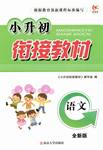��Ŀ����
�ٶ�Ӣ�������ʦҪ��ͬ��֮�佻�������ģ���������ͬ��д���������ġ�����
����10�����Դ���ÿ���������������ÿ��������漰һ�����ʵ����ӡ�ɾ�����ġ�
���ӣ���ȱ�ʴ���һ��©�ַ��ţ�/\��������������д���üӵĴʡ�
ɾ�����Ѷ���Ĵ���б�ߣ�\��������
�ģ��ڴ��Ĵ��»�һ���ߣ����ڸô�����д���ĺ�Ĵʡ�
ע�⣺1. ÿ���������ľ�����һ�ʣ�
2. ֻ������10�������ߣ��ӵ�11���𣩲��Ʒ֡�
There are lots of experience in our life. The most unforgettable one for me is the speech competition holding last year. I��m interested in English. When my English teacher told me that I had chosen to take part in the speech competition, I devoted me to the preparation. I was determined to win the first prize. I was such nervous when I stood on the stage that I forgot everything. Not until I caught a sight of my teacher did I calm down. Finally��I do a good job. When I heard I got the first prize��my heart was filled in joy and tears rolled down. Through this speech competition��I understand that it is confident that makes people successfully.
1.experience��experiences
2.holding��held
3.been��chosen
4.me��myself
5.such��so
6.aȥ��
7.do��did
8.in��with
9.confident��confidence
10.successfully��successful/succeed
��������
1.experience��experiences�������á�����ν�ﶯ��are,��֪�˴�����Ӧ�Ǹ�����ʽ��
2.held ��ν�����á�competition��hold֮���DZ�����ϵ������Ӧ�ù�ȥ�ִʡ�
3.been��chosen ��̬���á�����I��chose֮��Ϊ������ϵ��had been chosen��ѡ�С�
4.me��myself �������á�devote oneself to sth.�����ڡ�
5.such��so ���ݴʸ������á�such������ʣ�so ������ݴʻʡ�����nervous,��֪��so���Ρ�
6.aȥ�� �ڴ����á�catch sight of���������ùڴʡ�
7.do��did ʱ̬���á����Ľ�����ȥ������飬���Դ˴�Ӧ��һ���ȥʱ��
8.in��with������á�be filled with������
9.confident��confidence���ݴ����á����ݽṹ��֪���˴�ǿ�����Ǿ��ӵ��������Ӧ�����ʡ�
10.successfully�� successful/succeed�������á�Make sb. do sth.��make sb.+adj.�ǹ̶��ṹ
���㣺���ĸĴ�

 ѧ�����νӽ̲��Ͼ���ѧ������ϵ�д�
ѧ�����νӽ̲��Ͼ���ѧ������ϵ�д� Сѧ������ҵϵ�д�
Сѧ������ҵϵ�д� ��ʿһ��ȫͨϵ�д�
��ʿһ��ȫͨϵ�д�